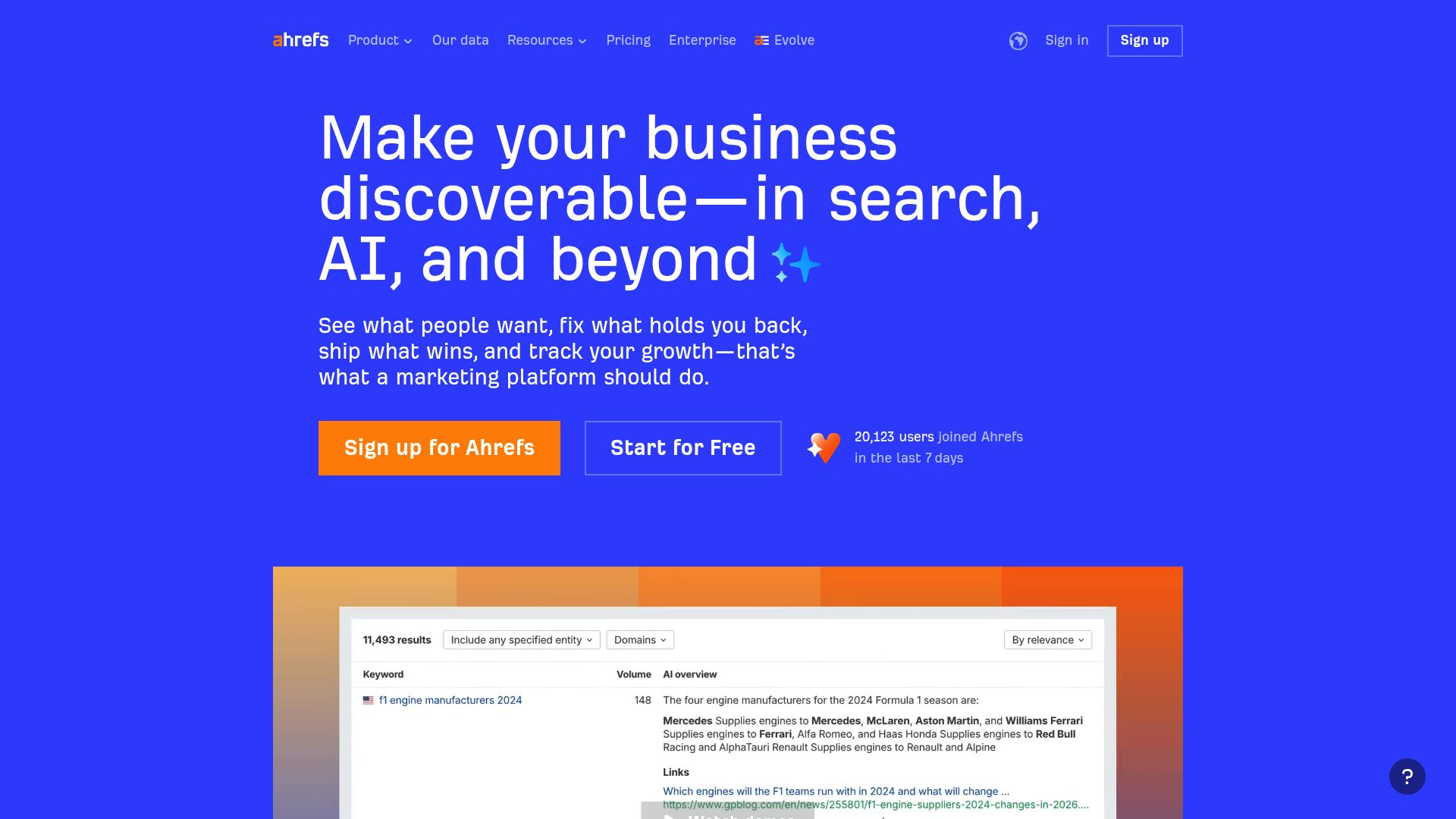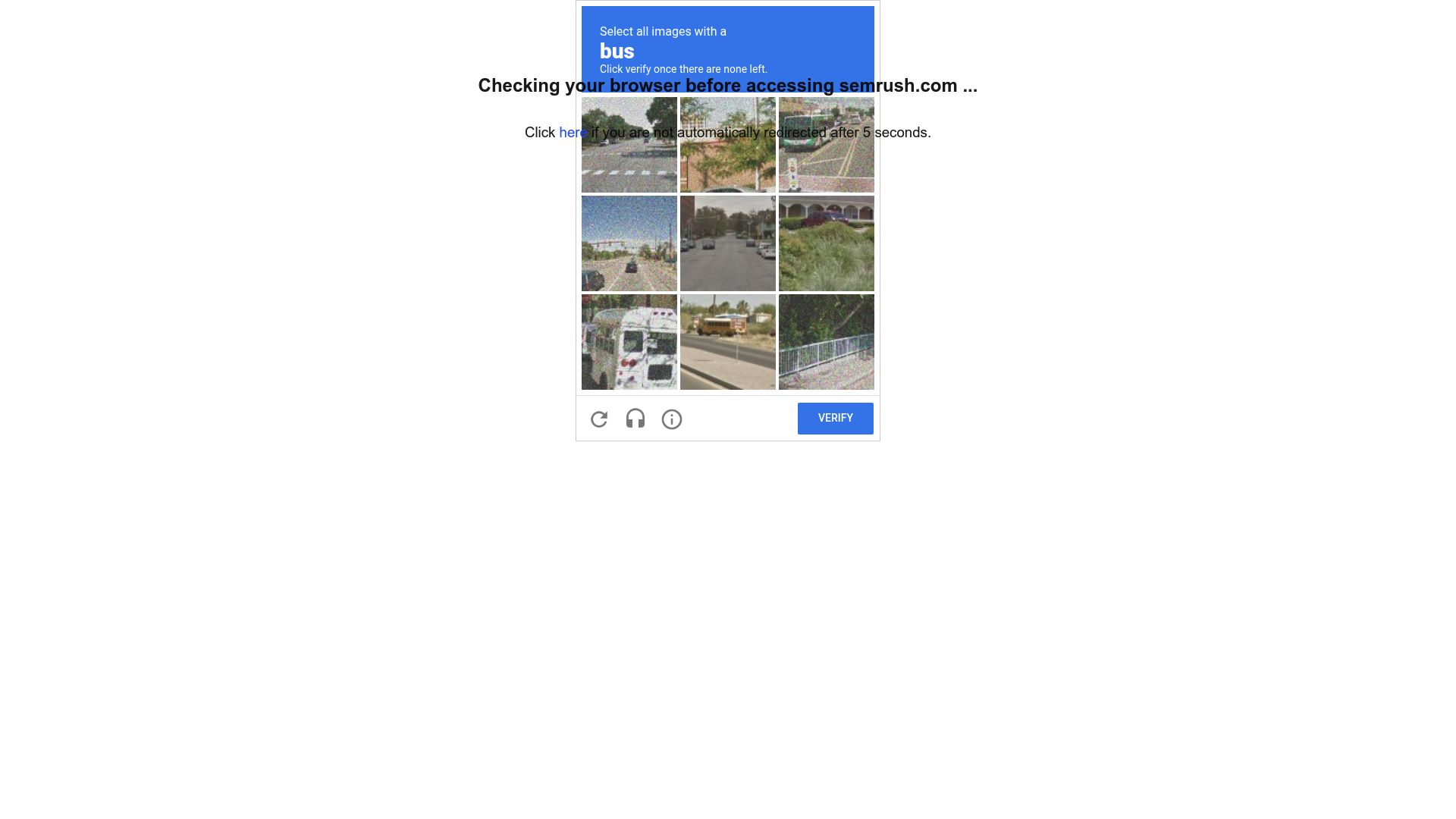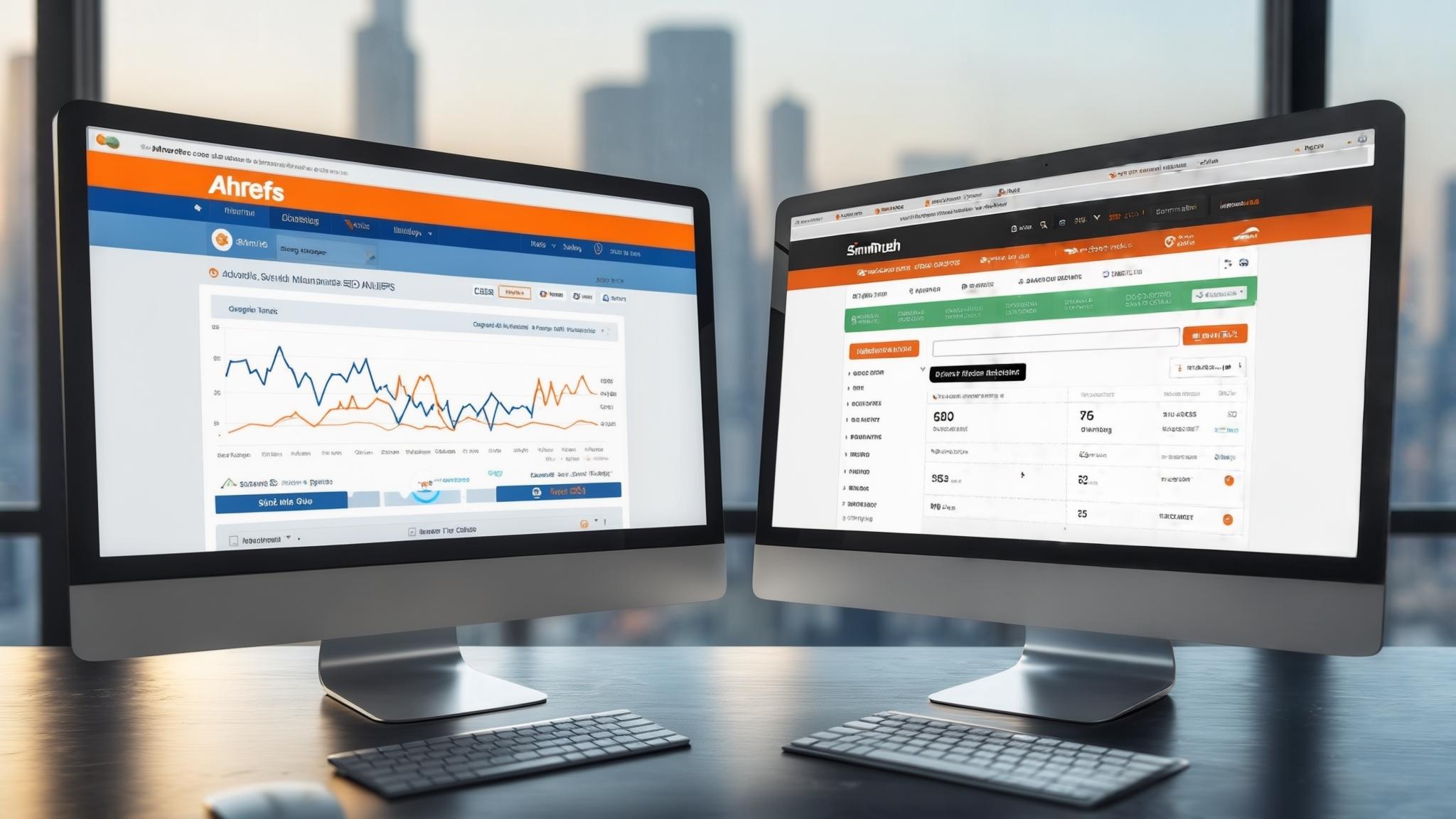Last year, I was juggling SEO for three different clients and getting seriously frustrated switching between tools. I’d be deep in competitor research, then hit a paywall, then have to remember which tool had the feature I actually needed. So I decided to test both Ahrefs and Semrush side-by-side for four months using my own money – not some free trial where you can’t really dig deep.
Look, I’m not going to bore you with another cookie-cutter comparison post. I actually used both of these tools every single day, got annoyed with them, celebrated small wins when I found a killer keyword, and dealt with the real frustrations that nobody talks about in those polished review posts. Whether you’re trying to decide between these two SEO giants or wondering if there’s a better path altogether, I’ll break down exactly what each tool does well (and where they’ll drive you crazy).
Table of Contents
-
TL;DR: Quick Takeaways
-
Comparing Your Options
-
What You Should Consider Before Choosing
-
Ahrefs: The SEO Specialist’s Dream
-
Semrush: The All-in-One Marketing Machine
-
Alternative Options Worth Considering
-
FAQ
-
Final Thoughts
TL;DR: Quick Takeaways
Ahrefs is like driving a well-designed car – everything’s where you’d expect it to be, and it excels at backlink analysis. But it’s pricey and pretty much only does SEO. Semrush is more like sitting in an airplane cockpit – incredibly powerful once you know what all the buttons do, but it’ll give you more bang for your buck with marketing tools that go way beyond just SEO.
Let’s be real about the money – we’re talking about $130-140 every single month. That’s like a decent car payment. For a small business, that’s not pocket change, so you better make sure you’re actually going to use whatever you’re paying for. Your team size and how tech-savvy everyone is will determine which tool doesn’t make you want to pull your hair out.
Here’s what I wish someone had told me before I started: Neither tool is going to magically increase your traffic. They’re research platforms that dump massive amounts of data on your desk without telling you what to do next. I spent my first month drowning in keyword lists instead of just picking 10 good keywords and creating content around them.
Ahrefs vs Semrush Comparison Table
|
Feature |
Ahrefs |
Semrush |
Winner |
|---|---|---|---|
|
Keyword Database |
28.7 billion keywords |
27.3 billion keywords |
Ahrefs (slightly) |
|
Backlink Database |
35 trillion links |
43 trillion links |
Semrush (by volume) |
|
Interface Simplicity |
Clean, SEO-focused |
Complex, feature-rich |
Ahrefs |
|
Starting Price |
$129/month |
$139.95/month |
Ahrefs |
|
Marketing Tools |
SEO only |
Full marketing suite |
Semrush |
|
Learning Curve |
Moderate |
Steep |
Ahrefs |
|
Daily Rank Tracking |
$200/month add-on |
Included |
Semrush |
|
Team Collaboration |
Limited |
Extensive |
Semrush |
|
Content Optimization |
Basic |
Advanced |
Semrush |
|
PPC Integration |
None |
Comprehensive |
Semrush |
Comparing Your Options
Here’s the thing – picking between these two isn’t rocket science, but it’s not obvious either. It really depends on what kind of work you’re doing and how much complexity you can handle without losing your mind.
Criteria Breakdown
Before you commit to either platform, you need to honestly assess what you’re trying to accomplish. I’ve watched too many people choose based on flashy features they’ll never use or miss critical requirements that become deal-breakers three months later when they’re stuck in a contract.
Are you managing SEO for just one website, running an agency with multiple clients, or do you need integrated marketing beyond just search optimization? I learned this the hard way when I initially chose Ahrefs just because everyone on SEO Twitter was raving about it. That lasted about two weeks before I realized I needed the PPC integration that only Semrush offered.
Full transparency – I’m not getting paid by either company to write this. I used my own credit card to test both tools because I needed to make this decision for my own business, and monthly subscriptions add up fast when you’re trying to figure out which one actually works.
Ahrefs: The SEO Specialist’s Dream
What Ahrefs Is Best Known For
Ahrefs built its reputation as the go-to backlink analysis tool, and honestly, that foundation still shows today. When I first started using it back in 2019, the interface felt refreshingly simple compared to other SEO tools that tried to cram every possible feature into one dashboard.
The company started as a backlink checker in 2011, and they’ve stuck to their guns – they refuse to bloat the platform with features that don’t directly serve SEO professionals. In a world where every tool tries to be everything to everyone, this focused approach actually stands out. You won’t find social media scheduling or email marketing templates here, and that’s exactly the point.

Ahrefs Features
Here’s how I actually use Site Explorer: I plug in a competitor’s URL, scroll down to their top pages, and within 5 minutes I have a list of content ideas that I know are already working in my niche. It’s like having a spy in their marketing meeting.
The Keywords Explorer is where things get interesting. Most tools tell you 1,000 people search for ‘best coffee maker’ each month. Ahrefs tells you that the #1 result actually gets 1,500 clicks because people also click when searching for related terms like ‘coffee maker reviews’ or ‘top coffee machines.’ That’s the difference between theory and reality.
Their Content Explorer has saved me countless hours of manual research. Instead of guessing what content might work, I can see exactly what’s getting shared and linked to in my industry. The Rank Tracker gives you historical data going back years, which is invaluable when you’re trying to understand seasonal trends or the impact of algorithm updates.
Ahrefs Pros
The interface design is genuinely brilliant – I rarely find myself hunting for features or clicking through five different menus to get what I need. When I search for who’s linking to my competitors, I actually find links that other tools miss. The numbers are huge – we’re talking about tracking links from half a billion different websites – but what matters is the accuracy.
When I was working with a client who had 12 different websites (don’t ask), Ahrefs’ unlimited domains feature saved my butt. With most other tools, I would’ve had to upgrade to their most expensive plan just to track everything. The historical data goes back to 2015, giving you context that newer tools simply can’t match.
The learning curve is manageable even if you’re not a technical SEO expert. Their blog and YouTube channel actually teach you useful stuff instead of just trying to sell you more features. I’m talking about spending maybe 2-3 weeks figuring out where everything is, then you’re productive.
Ahrefs Cons
Honestly, Ahrefs’ credit system drove me crazy. I’d be in the middle of competitor research and suddenly hit a wall because I ran out of credits. It felt like playing a video game where you have to feed quarters into the machine. The daily rank tracking costs an additional $200/month, which feels excessive when competitors include it.
If you’re running any kind of paid campaigns, you’re out of luck – there’s basically no PPC functionality. I had to keep Google Ads open in another tab constantly. There’s no built-in outreach functionality either, so managing link building campaigns means juggling yet another tool.
The content optimization features lag behind what competitors offer. You’ll get basic suggestions, but if you’re trying to optimize content for featured snippets or entity-based SEO, you’ll need to look elsewhere.
Ahrefs Criteria Evaluation
Keyword Research: 4.5/5 – The 28.7 billion keyword database is massive, and that traffic potential metric I mentioned earlier provides insights you won’t find elsewhere. The global search volume data helps if you’re doing international SEO, though the interface could use more filtering options.
Backlink Analysis: 5/5 – This is where Ahrefs absolutely destroys the competition. The link index is incredibly comprehensive, the data is accurate, and the interface makes complex analysis feel simple. I can analyze up to 10 competitors simultaneously, which is genuinely useful for competitive research.
Technical SEO: 3.5/5 – Site audit capabilities are solid but sometimes flag issues that aren’t actually problems. The Structure Explorer helps understand site architecture, but the content recommendations feel pretty basic compared to what Semrush offers.
Pricing Value: 3/5 – Starting at $129/month with that confusing credit system hurts accessibility. The value improves significantly if you’re an agency managing multiple sites, but solo users might find better options elsewhere.
Ease of Use: 4.5/5 – Clean, focused interface that doesn’t overwhelm you with unnecessary features. Perfect for teams that want straightforward SEO tools without the complexity of learning a dozen different modules.
Community Reviews
G2 Review (4.5/5): “Ahrefs has become indispensable for our link building campaigns. The backlink data is more accurate than anything else we’ve tried, and the interface makes complex analysis feel simple. Just wish they’d fix that credit system.” – Marketing Director at SaaS company
Capterra Review (4.6/5): “We switched from Semrush to Ahrefs specifically for the cleaner interface. Our team productivity increased because we spend less time figuring out how to use the tool and more time acting on insights. The learning curve is much more manageable.” – SEO Consultant
Trustpilot Review (4.4/5): “The keyword research features are excellent, but the pricing keeps going up. Still worth it for serious SEO work, but I wish they’d simplify that damn credit system. Sometimes I feel like I’m being nickeled and dimed.” – Agency Owner
People consistently love the data accuracy and clean interface, but that pricing structure frustration comes up in almost every review I read.
Ahrefs Pricing
Ahrefs uses a tiered pricing structure that starts with a limited Starter plan at $29/month, though honestly, most people need the Lite plan at $129/month for any meaningful functionality. The Standard plan ($249/month) and Advanced plan ($449/month) add more projects and users but maintain the same core features. The confusing part is their credit system for certain features, which makes it difficult to predict your actual monthly costs.
View current Ahrefs pricing plans
Semrush: The All-in-One Marketing Machine
What Semrush Is Best Known For
Semrush positioned itself as the comprehensive digital marketing platform that goes way beyond SEO. While Ahrefs focused on perfecting backlink analysis, Semrush built 55+ tools covering everything from PPC management to social media scheduling to competitor ad analysis.
This approach appeals to marketing teams that need multiple capabilities under one roof, though I’ll be honest – it can feel overwhelming when you just want to do some basic keyword research. The platform’s strength lies in its integrated approach. You can research keywords, create content, track rankings, manage outreach campaigns, and analyze your Google Ads performance without switching between different tools.
If you’re doing any kind of broader digital marketing beyond just SEO, this comprehensive approach often makes more sense than juggling multiple subscriptions.

Semrush Features
The Keyword Magic Tool is honestly one of the most comprehensive keyword research interfaces I’ve used. It provides extensive variations and AI-powered difficulty scores that feel more personalized than generic industry averages. Their Position Tracking includes daily updates by default, which Ahrefs charges an extra $200/month for.
The Site Audit tool goes beyond just technical issues. It actually provides content recommendations and on-page optimization suggestions that you can act on immediately. The built-in CRM functionality helps manage outreach campaigns, which is huge if you’re doing any link building.
Their Content Audit tool identifies optimization opportunities across your existing content, and the social media management features mean you can schedule posts and track engagement alongside your SEO metrics. The PPC tools integrate with your Google Ads account to show you which keywords are working for paid search.
Semrush Pros
The breadth of features is genuinely impressive – you get tools for SEO, PPC, content marketing, social media, and more in a single subscription. The AI-powered insights provide personalized recommendations rather than generic suggestions that might not apply to your specific situation.
The backlink database (43 trillion links) is actually larger than Ahrefs, though the interface requires more clicks to get the same insights. The built-in outreach and CRM tools streamline link building campaigns instead of forcing you to export data to another platform.
Customer support consistently gets high marks. When I got stuck with a technical issue, their chat support actually knew what they were talking about and could walk me through complex features. The reporting capabilities are extensive with generous limits even on entry-level plans.
Semrush Cons
The learning curve is steep – I almost canceled after the first week because I felt completely lost. Then I found their Academy training videos and spent a weekend watching them, which was a game changer. Sometimes the tool isn’t bad – you just need to invest in learning it properly.
The interface can feel clut tered compared to Ahrefs’ clean design. I constantly had team members asking me to export reports because they couldn’t figure out how to find what they needed. Not exactly a productivity booster when you’re trying to collaborate.
Some users report data accuracy issues, particularly with smaller websites or niche markets. Advanced features require higher-tier plans, making the true cost higher than the entry-level pricing suggests. The platform can feel slow when running complex reports or analyzing large datasets.
Semrush Criteria Evaluation
Keyword Research: 4/5 – The 27.3 billion keyword database is comprehensive, and those AI-powered difficulty scores provide personalized insights. The integration with PPC data adds valuable context that pure SEO tools miss, especially if you’re running paid campaigns alongside organic efforts.
Backlink Analysis: 4/5 – Larger link index than Ahrefs with built-in outreach tools, but the interface requires more clicks to get the same insights. The toxic link identification is a useful bonus feature that can save you from Google penalties.
Technical SEO: 5/5 – Comprehensive site auditing with actionable content recommendations. The log file analysis and internal link distribution reports provide deeper technical insights than most competitors. This is where Semrush really shines.
Pricing Value: 4.5/5 – Straightforward pricing with extensive feature sets included. The all-in-one approach provides better value for teams managing multiple marketing channels, even if you don’t use every single feature.
Ease of Use: 3.5/5 – Powerful but complex interface that requires significant time investment to master. The visual reports are excellent once you understand how to generate them, but getting there takes patience.
Community Reviews
G2 Review (4.5/5): “Semrush replaced three different tools for our marketing team. The learning curve was worth it because we now have everything integrated in one platform. The content optimization suggestions have improved our organic traffic significantly.” – Digital Marketing Manager
Capterra Review (4.4/5): “The keyword research capabilities are outstanding, and having PPC data alongside SEO metrics helps with our integrated campaigns. Sometimes the interface feels overwhelming, but the depth of features justifies the complexity.” – Marketing Agency Owner
Trustpilot Review (4.6/5): “We’ve been using Semrush for two years and keep discovering new features. The customer support team is incredibly helpful when you’re trying to figure out advanced functionality. Worth every penny for serious marketers.” – E-commerce Marketing Director
Users consistently praise the comprehensive feature set and integration capabilities while noting the steep learning curve and occasional interface complexity as primary drawbacks.
Semrush Pricing
Semrush offers straightforward monthly pricing starting with the Pro plan at $139.95/month, which includes most core features. The Guru plan ($249.95/month) adds historical data and extended limits, while the Business plan ($499.95/month) includes API access and advanced sharing options. Unlike Ahrefs, there’s no confusing credit system – you know exactly what you’re paying each month.
View current Semrush pricing plans
Alternative Options Worth Considering
Moz Pro: The Beginner-Friendly Choice
Moz Pro focuses on user-friendly SEO with particularly strong local search capabilities. Their Domain Authority metric remains widely recognized across the SEO industry, and honestly, the interface is way less intimidating if you’re just starting out.
Pricing ranges from $99-$599/month, making it more accessible than either Ahrefs or Semrush for small businesses just getting into SEO. When I was bootstrapping my first agency, Moz felt like training wheels – in a good way. You can actually understand what you’re looking at without needing a computer science degree.
SE Ranking: Budget-Conscious All-in-One
I tested SE Ranking when I was bootstrapping my agency and honestly? For basic keyword research and rank tracking, it does 80% of what the expensive tools do for half the price. SE Ranking provides comprehensive SEO functionality at more affordable prices ($44-$191/month).
The platform includes white-label reporting for agencies and covers most essential SEO tasks without the premium pricing of larger competitors. If you’re just starting out, don’t let anyone shame you into thinking you need the premium stuff right away. Get results first, then upgrade when you’re actually making money.
Majestic: Specialized Link Analysis
Majestic specializes exclusively in backlink analysis with their unique Trust Flow and Citation Flow metrics. Pricing runs $49.99-$399.99/month, and the platform is ideal for link building specialists who need deep link analysis without other SEO features. If you’re obsessed with link data and don’t need the other bells and whistles, this might be your sweet spot.
Ubersuggest: The Budget Option
Ubersuggest offers basic keyword research and content ideas at budget-friendly prices ($29-$99/month). Neil Patel’s platform includes lifetime deal options and covers essential SEO tasks for solo entrepreneurs and small businesses.
Pro tip I learned the hard way: Don’t sign up for any of these tools in November or December. You’ll pay full price and then barely use it because of the holidays. I did this with Semrush and basically paid $140 to track my rankings going down while I wasn’t creating content.
FAQ
Which tool has better keyword research capabilities?
Ahrefs edges out Semrush slightly with its larger keyword database (28.7 billion vs 27.3 billion) and that traffic potential metric that shows realistic click expectations rather than just search volume. But here’s what really matters: Semrush’s AI-powered difficulty scores and integration with PPC data provide context that I actually use when planning campaigns.
Want to know what your competitors are ranking for? I plug their domain into either tool and within 10 minutes I have a spreadsheet of keywords they’re winning at that I’m not even trying for. It’s like getting their SEO strategy handed to you on a silver platter.
Is the price difference between Ahrefs and Semrush significant?
The starting prices are close – Ahrefs at $129/month and Semrush at $139.95/month – but the value proposition is totally different. Ahrefs uses that confusing credit system and charges extra for daily rank tracking, while Semrush includes comprehensive marketing tools beyond SEO.
For pure SEO work, Ahrefs might be more cost-effective, but if you’re doing any kind of broader digital marketing, Semrush provides better overall value. Just remember – we’re talking about real money here, not pocket change.
Which platform is easier for beginners to learn?
Ahrefs wins on ease of use with its clean, focused interface that doesn’t make you feel like you need a manual to find basic features. I’m talking about maybe 2-3 weeks to figure out where everything is, then another month before you’re actually fast at using it.
Semrush offers more features but requires significant time investment to master – the interface can feel like sitting in an airplane cockpit. If you’re expecting to jump in and be productive on day one with either tool, you’re going to be disappointed.
Do I need both tools or can one replace the other?
Modern SEO requires tools that go beyond traditional keyword tracking, as answer engine optimization tools are becoming increasingly important for comprehensive search strategies. For most people, you need to pick one and stick with it.
Choose Ahrefs if you’re focused purely on SEO and want the best backlink analysis with a clean interface. Choose Semrush if you need comprehensive marketing tools beyond SEO or manage multiple marketing channels. Very few businesses actually need both platforms simultaneously – that’s just burning money.
What’s the biggest limitation of both tools?
Here’s what these tools won’t do: magically increase your traffic. Both platforms are research tools that dump massive amounts of data on your desk without telling you what to do next. I’ve seen people spend months perfecting their keyword research while their competitors are out there publishing content and building links.
The real challenge isn’t accessing information – it’s knowing how to act on it effectively to drive actual business results. Data is useful, but execution beats analysis every time.
Final Thoughts
After months of hands-on experience with both platforms, I’d recommend Semrush for most businesses due to its comprehensive feature set and better value proposition. The all-in-one approach eliminates the need for multiple subscriptions, and the integrated marketing tools provide context that pure SEO platforms miss.
However, if you’re exclusively focused on SEO and backlink analysis, Ahrefs is still the gold standard with superior data accuracy and interface design that won’t make you want to throw your laptop out the window.
Here’s what really matters though – both tools suffer from the same fundamental limitation. They’re sophisticated research assistants that dump massive amounts of data on your desk without telling you what to do next. I’ve watched countless businesses invest $1,500+ annually in these platforms only to struggle with analysis paralysis, incomplete strategy execution, and the constant learning curve of mastering complex software interfaces.
This is particularly challenging as search evolves toward answer engine optimization strategies that traditional platforms haven’t adapted to yet.
This is where The Marketing Agency bridges that critical gap. Instead of adding another monthly software subscription to your stack, we deliver finished marketing outcomes using our mastery of these platforms. Our team has already invested the time to become experts in both tools, but more importantly, we know how to transform their insights into profitable campaigns across Answer Engine Optimization, Knowledge Graph Optimization, and Generative Engine Optimization – areas these traditional platforms haven’t even begun addressing.
My advice? Sign up for the free trials of both (yes, they both offer them) and spend a week actually using each one for your real projects. Don’t just click around – import your actual website, research your actual competitors, and see which one feels right for how you work.
Bottom line:
-
Choose Ahrefs if you need pure SEO focus with the cleanest interface and most accurate backlink data
-
Choose Semrush if you want comprehensive marketing tools beyond SEO with better overall value
-
Consider your team’s technical expertise and available time for learning complex platforms
-
Factor in additional costs for daily rank tracking and team access when comparing prices
-
Remember that data without execution equals expensive dashboards with zero ROI
-
Evaluate whether you need software tools or strategic partners who deliver results
Rather than spending months learning software interfaces and interpreting analytics dashboards, consider partnering with specialists who’ve already mastered these platforms. We leverage both tools’ capabilities while you focus on running your business, delivering superior results through expert execution and cutting-edge optimization techniques that traditional SEO tools haven’t caught up to yet.
When the decision becomes overwhelming, remember that tool selection matters less than having experts who can maximize either platform’s potential. Ready to skip the tool debate entirely and start seeing actual results? We can discuss how our proven methodology can deliver the marketing outcomes you’re really after.
****



